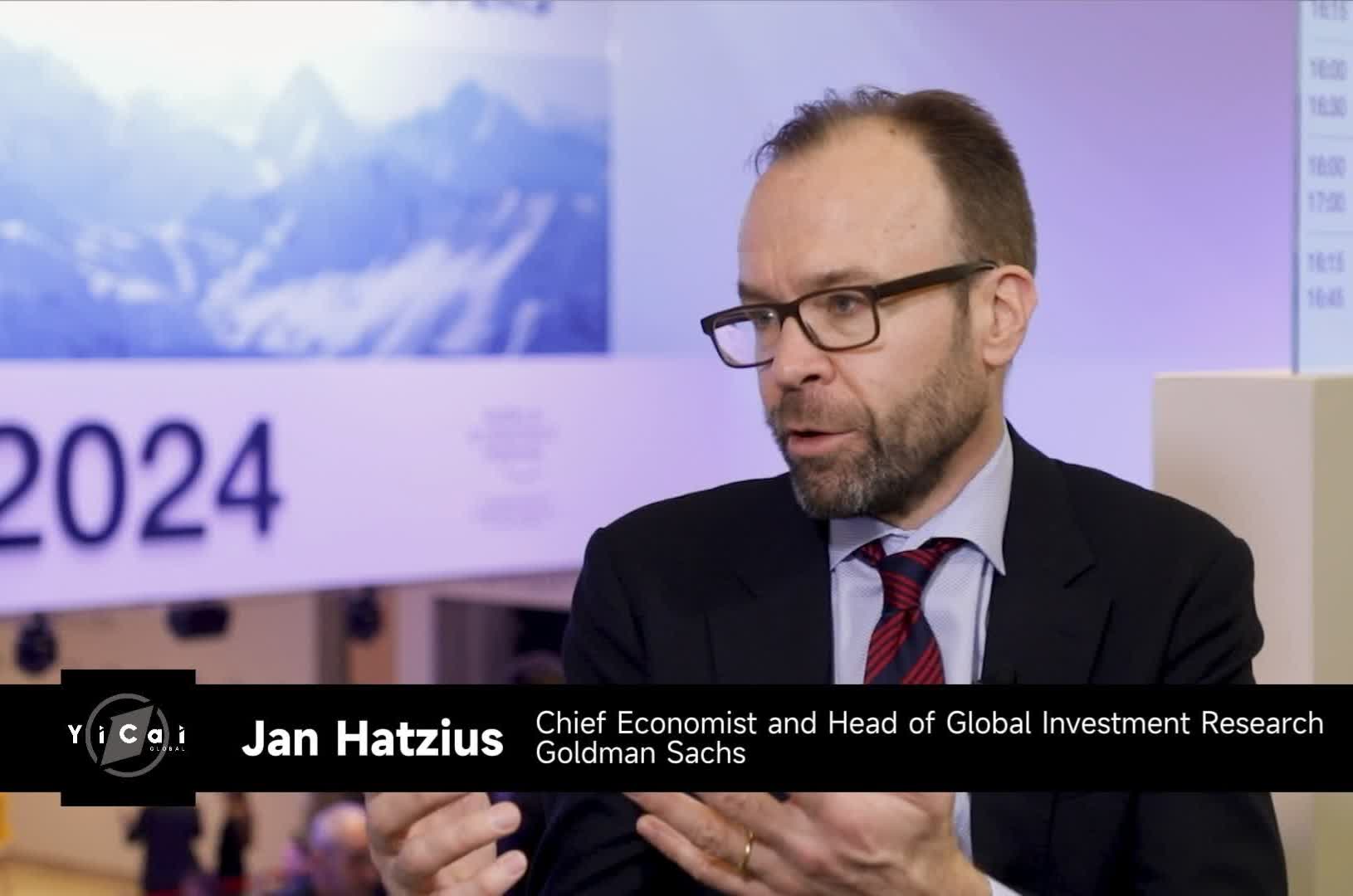
(Yicai) Jan. 19 -- China's policymakers are likely to stimulate the economy incrementally as too aggressive expansion in credit can cause longer-term imbalances, said the chief economist at US investment bank Goldman Sachs.
"Our expectation is policymakers will continue to stimulate at the margin with some rate cuts in the policy rate, a cut in the reserve requirement ratio, and we are expecting somewhat more supportive fiscal policies," Jan Hatzius told Yicai on the sidelines of the World Economic Forum in Davos that ends today.
"I think we have seen some of this already over the last several months, both in terms of steps that have been taken, incremental steps, and in terms of what policymakers have said," he noted.
China's 5.2 percent growth in gross domestic product in 2023 was "broadly as expected," Hatzius said. "We have 4.8 percent for our 2024 forecast", he noted. "Growth is going to be a little bit stronger than what maybe other forecasters have in their numbers."
China should find ways of stimulating activity that does not work through the property market, Hatzius noted. "Developing social safety nets that encourage households to spend the larger share of their income because they don't have to be too concerned about how they are going to care of themselves at old age too much or be more confident to pay for healthcare bills."
Regarding the US market, Hatzius predicted that the first cut of the interest rate could be done at the Federal Open Market Committee meeting in March because of the decline in inflation and guidance from Fed officials.
"But ultimately, this is going to depend on the data," he noted. "There are some upside risks, and there are some downside risks to the inflation outlook."
"On the upside, we do have a lot of geopolitical uncertainty, especially in the Middle East, so that can certainly delay the first cut," Hatzius said. About the downside risks, he pointed out, "The impact of housing in the US inflation data, and also the fact that there are still some prices are very inflated levels that are going to decline in outright terms."
Editors: Dou Shicong, Martin Kadiev